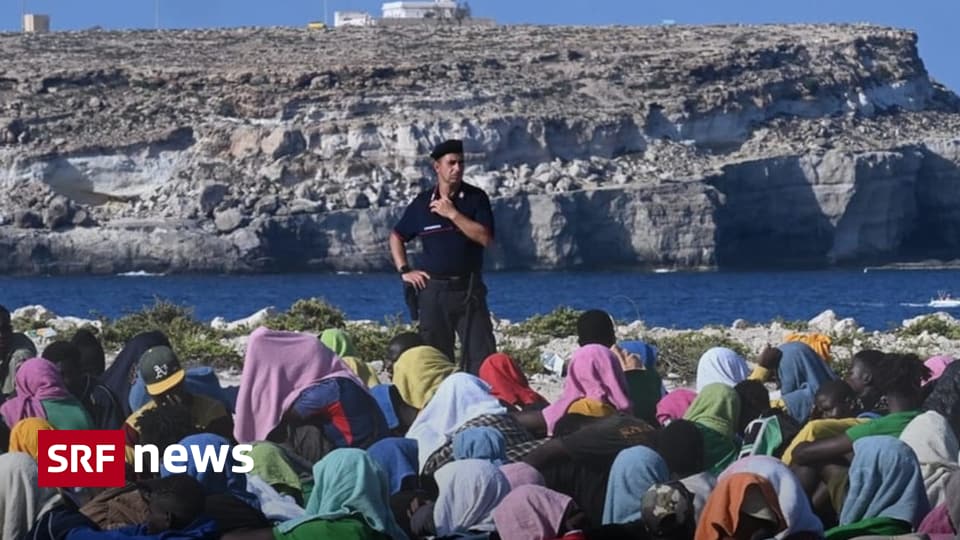
In her new one Migration report Doctors Without Borders paints a bleak picture of the EU's external borders and North Africa. Physical violence, torture and exploitation are part of everyday life. Felix Braunsdorff, an expert on escape and migration from the aid system, describes the situation.
SRF: What is the situation in North African EU partner countries?
FELIX BRAUNSTORF: In Libya we see a system of detention centers where people are sent back if they are picked up by the Libyan coast guard in the Mediterranean. These are detention centers that speak of conditions of extreme torture.
It has significant health consequences for people.
We see sexual assaults and lack of food and water. It has significant health consequences for people. It is a form of violence that we see and criticize in external forms of cooperation with non-EU countries.
How does it look at external borders in EU countries?
This is the second ring, so people arriving at the EU's external border experience other or similar forms of violence – including physical violence such as beatings. However, we also see patterns of failure to provide assistance to asylum seekers across the entire EU's external borders. For example, when they try to apply for asylum at the Polish-Belarusian border and are then pushed back by Polish border guards – violently. From August 2021 to September 2023, Médecins Sans Frontières helped more than 28,000 people at the EU's external borders injured or traumatized by border fences, pushbacks or a lack of search and rescue operations.
What do you think the EU should do to improve the situation?
In principle, a change of course is needed at the EU level that prevents violence, but also prevents the inhumanity we gradually observe. Because it goes hand in hand with the use of violence against those who seek protection, and after a certain time it is considered a kind of normal. This should not happen.
For example, on the island of Samos, our teams found an outbreak of scabies.
Reception conditions should be humane. We don't see that in closed centers on the Greek islands. There are indescribable sanitary conditions. For example, on the island of Samos, our teams found an outbreak of scabies. 4,000 people living in the camp have no doctor. That is why states must ensure that humanitarian reception conditions are created at the external border, where people can rest, where they can register and process their asylum application early.
Reducing the number of refugees is a high priority in European politics. In this context, how should the European Union deal with this issue?
When answering this question, one should not forget the fact that the refugee situation is different worldwide: the majority of refugees do not seek protection in rich countries like Europe, but in low and middle income countries – three quarters.
So this political debate in Europe is somewhat cynical.
There are humanitarian crises in the world, such as the civil war in Sudan, that are currently escalating or triggering large refugee movements. So, one might say that this political debate in Europe, which is mainly about crunching numbers – is somewhat cynical.

“Wannabe pop culture fanatic. Zombie advocate. Entrepreneur. Internet evangelist. Alcohol fanatic. Typical travel buff.”





More Stories
Choosing the Right Quality Management Software for Your Industry
If guests bring items: Can shower gel be packed from the hotel?
This diet can prevent death from dementia